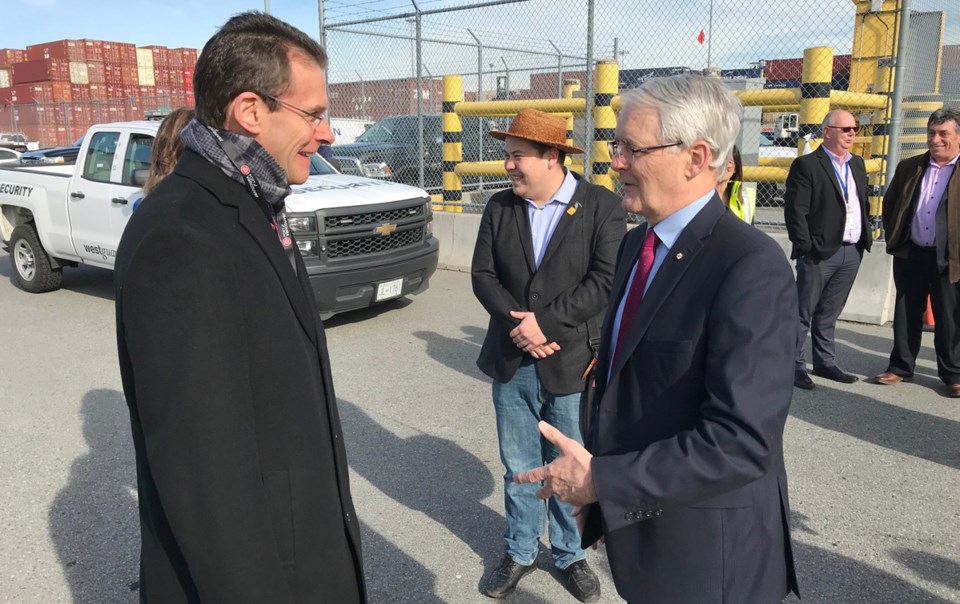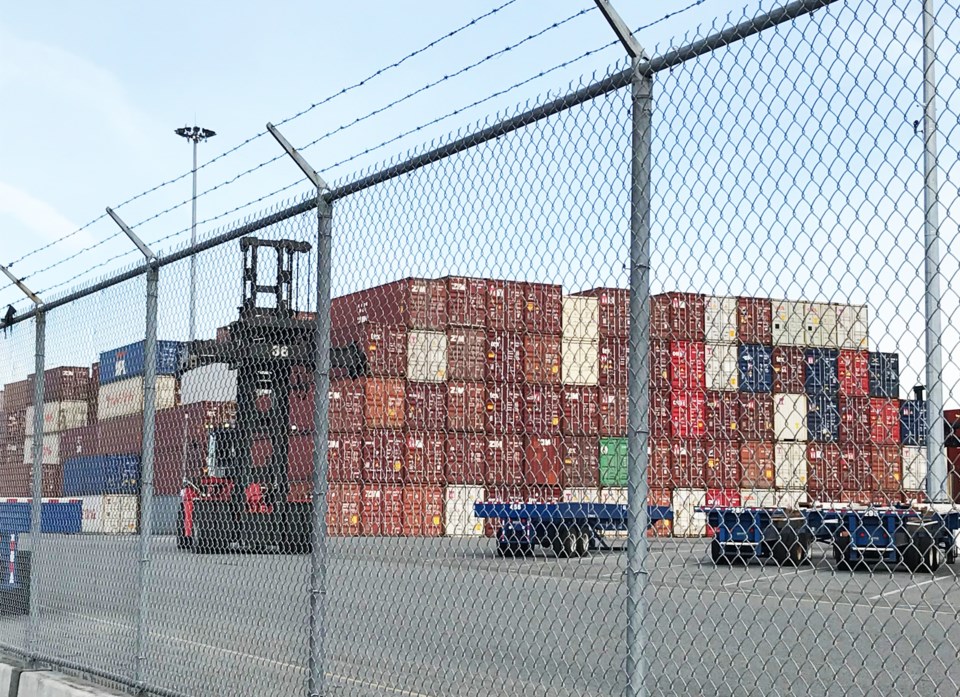Could the Port of Vancouver become a private business entity?
Last week, Transport Minister March Garneau was at Deltport to announce a review of Canada’s port authorities, but privatization wasn’t on the menu.
He said the goal of the review is to optimize the role of Canada’s port authorities in the country’s transportation system. It will be the first such review since the authorities were established in 1998.
The Vancouver port welcomed the announcement, noting the port is Canada’s largest, and the port authority has worked with government and industry to grow the port sustainably so that it is well positioned to competitively accommodate rapidly increasing international trade.
“Canada’s port authorities are financially self-sustaining federal agencies with a mandate to enable Canada’s trade while protecting the environment and seeking to address impacts on communities,” said Robin Silvester, president and CEO of the Vancouver Fraser Port Authority.
“We support the principle of continuous improvement of regulatory and governance processes, and welcome the federal government’s review to ensure the system of Canada Port Authorities strikes a good balance of these priorities.”
He noted the lands and waters within the Vancouver Fraser Port Authority’s jurisdiction are federal assets, and the role of the port authority is to manage how they are developed, leased and used to ensure safety, Canada’s ability to trade and protection of the environment.

Robin Silvester, president and CEO of the Vancouver Fraser Port Authority (left) talks with Marc Garneau, Minister of Transport (right). Tsawwassen First Nation Chief Bryce Williams (middle) was also on hand at the announcement of a "modernization review" for Canada's port authorities.
Canada’s 18 port authorities currently operate at arms-length from the federal government.
While the review will reportedly not consider privatization, it remains to be seen if Canada’s largest ports could end up being privatized under the Liberal government.
Debate over port privatization began when Justin Trudeau’s new government hired Morgan Stanley Canada Ltd. to study privatization’s potential.
A report last year by the C.D. Howe Institute concluded changing the financial structure of the country’s major ports could raise much needed infrastructure money. The report estimated that the Port of Vancouver alone has an equity value nearing $2 billion. It also noted that Canada’s major ports already operate with significant private investment, and a sale of Canada's four biggest ports could fetch as much as $3.4-billion.
The report also argued that port privatization would make “little noticeable difference for shippers” and that the unlocked equity value could be reallocated to address high-priority infrastructure needs for Canadians, not just ports.
It also remains to be seen how privatization, if that was the route the feds chose, could impact the Vancouver port’s proposed Terminal 2 expansion at Roberts Bank.
The Terminal 2 project should likely not go ahead if taxpayer dollars are needed to help fund it, the C.D. Howe Institute concluded, adding, “The ability of the port authority to attract private capital for the full cost of the terminal is a litmus test for whether the expected demand justifies the investment.”
The Vancouver port has expressed opposition to potential privatization, concerned it could hurt future capacity-increasing investments.
Meanwhile, the Delta-based Citizens Against Port Expansion (CAPE) and Against Port Expansion (APE) continue to raise alarm about the proposed expansion, including the environmental impacts, while also questioning the business case.



